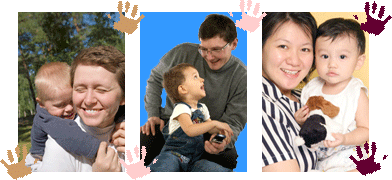Innocent Victims of a Litigious Divorce: The Children
"The War of the Roses" depicted every couple's worst nightmare. Two people who were once in love are engaged in a major battle where both sides lose. Divorce is second only to death as the most stressful of life's experiences. Litigated divorce increases the emotional stress many times due to the hostility generated and the high financial cost.
There is an alternative. Divorce mediation mitigates the lengthy, costly and often damaging effects of a litigated divorce because it is sensitive to the emotional toll placed on spouses and their children. Mediator Bettsie Wild is trained to safeguard the best interests of the children while acknowledge a couple's pain associated with a divorce without allowing those emotions to control the settlement procedure.
In the mediation sessions, the focus is on reaching mutually acceptable resolutions to the issues at stake—division of property, parenting plans, child support and spousal support. The mediator guides the parties in arriving at short-term and long-term resolutions to their particular concerns. The mediator and parties evaluate the couple’s present financial circumstances and help develop a plan for their financial needs. Taking the future into account during the mediation sessions makes it unlikely that the parties will return to court years later to modify the final settlement terms.
When parents decide to divorce, the children always suffer. The damage can be mitigated, however, when both parents remain focused on the best interests of their children. Many experts believe that it is not divorce but the ugly legal battles between parents that make children the unwitting causalities. Too often, they grow up unable to form and sustain long-term relationships. Parents in litigation expose their children to violence and conflict. Many children feel responsible for their parent's divorce. Children tend to blame themselves for the acrimony between their parents. Even when parents believe that they are not putting the children in the middle, children hear the arguing and experience the lack of affection between parents and feel threatened. Their security is at stake. This creates internal emotional instability.
Litigation forces parents to become adversaries where children become objects to be owned. Divorcing parents are often consumed with fear and anger. Litigation fosters these feelings. Parents may go to any length to get their children to love them. They speak derogatorily about the other parent, or they paint an ugly picture of how bad the other parent is. They may pressure the child to love only them. In a litigated divorce, children frequently feel compelled to choose between two parents. Parents often tempted to use their children as weapons or as a way to get "back" at the other parent.
Mediating a divorce can spare children these wounds and drastically reduce their pain. During mediation, parents learn how to negotiate. Mediation does not pit one parent against the other, which makes continued co-parenting possible after divorce. Mediation redefines "custody," calling on each parent to "share time" with their child. Since no parent is a loser, ugly litigation tactics are not necessary. In mediation, the emphasis is placed on the children's best interests, producing a positive win/win outcome for the entire family.
Mediation teaches parents how to negotiate, how to stay focused on the issues and how to listen to one another. Sometimes it is necessary to meet the other person's interests in order to have one's own interests met. For example, if a man wants his wife to become financially independent of him, in the short run it might be necessary for him to provide financial assistance.
When taking positions, people can become adversaries and no one’s interests are served. When taking a position, being right and winning becomes more important than the relationship that is established. Divorcing parents often forget that they will have to be in a relationship with one another for the rest of the child's life. How they handle the divorce will often determine the quality of that relationship in the future. There will be many occasions: birthdays, graduations, confirmations, bar/bat mitzvahs and weddings where parents will have to relate to each other in the lives of their children. While they will not be husband and wife, they will always be parents.
During mediation the couple is encouraged to keep their focus on the future rather than only on the immediate. Throughout mediation the interests of the children are always paramount. Mediators continuously remind conflicting parents to focus on the interests of the children rather than holding to fixed positions.
Mediation offers the best possibility that divorcing parents will be able to experience the joys of parenthood together despite their divorce.

